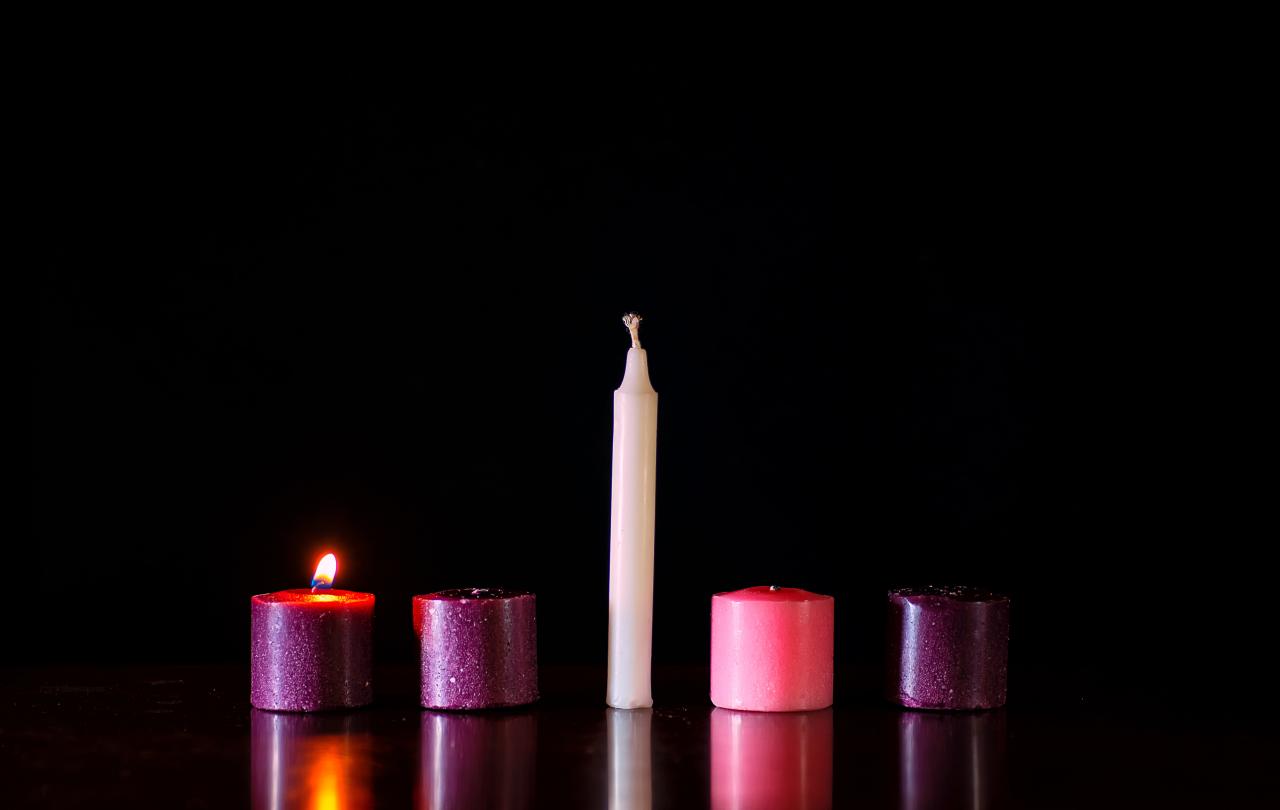
Growing up, I wasn’t a particularly big fan of Advent.
I think this possibly had something to do with the fact that I was never allowed a chocolate Advent calendar. Every year, my brother and I would petition my parents for one – even suggesting a Fairtrade Advent calendar, even offering to share it (which would be a Christmas miracle in and of itself), in the hope that this would swing the odds in our favour. But no such luck. Every year, we were told in no uncertain terms: ‘Advent is a time of waiting’.
… Can you tell both my parents are vicars?
So no chocolate for us.
I felt this particularly acutely in my first year at university. My flatmates and I decided to open our Advent calendars together on December 1st. Everyone else got chocolate – dairy milk, crunchie, even a Twix. I, however, got a hearty piece of Scripture, detailing two of the key Advent themes: ‘the people walking in darkness have seen a great light.’
After all, man shall not live by advent chocolate alone.
I am delighted to report, however, that since my mother-in-law heard this story for the first time, she now takes great delight in sending me a chocolate advent calendar every single year. My Lindt one for 2023 arrived last week.
Man shall not live by advent chocolate alone… but it certainly helps.
Of course, the older I’ve become, and the greater my understanding of church tradition, the more I’ve understood what my mother was getting at: Advent is a time of waiting.
In the church’s calendar, Advent is a season of expectation and preparation, as people prepare to celebrate Jesus’ birth whilst also looking ahead to his final return as judge at the end of time.
Traditionally, Advent has been split into four (or if you’re very serious about Advent – seven!) weeks, each with a different theme: Death, Judgement, Heaven, and Hell.
‘Advent is a time of waiting’ doesn’t seem so bad when you know what the alternatives are.
In more modern times, however, the church has generally moved away from the four themes of death, judgement, heaven and hell, and instead embraced slightly cuddlier abstract nouns: hope, peace, joy and love.
Much nicer.
But my new favourite way of thinking about Advent takes a middle ground between these two and comes from theologian Fleming Rutledge. She says this: ‘Advent begins in the dark’.
Advent begins in the dark.
Which seems, quite frankly, ridiculous, when Christmas lights are being turned on in late November, and sparkly baubles are for sale everywhere you look. But traditionally, she’s right: Advent does begin in the dark. Remember what my Advent calendar told me, all those years ago in my uni flat: ‘The people walking in darkness have seen a great light’.
Advent is a season of acknowledging the reality of the world and waiting with expectation for something better – which for Christians means Jesus’ birth and his triumphant return in glory. And if we’re going to acknowledge the reality of the world, we’re going to find some serious darkness.
You don’t need me to list them – they’re right in front of us: Israel and Gaza, poverty even in the most affluent of countries, the abuse of children, the exploitation by ruthless gangs of people desperate to build a better life. It’s everywhere in our newspapers, neighbourhoods, families, and our very selves. Darkness is, more often than not, the reality in which we live.
But we’re not very good, I find, at dwelling in the darkness when the option of skipping forward to Christmas is all around us. When you’re playing Whamageddon’ in every shop you go to, and your social media is filled with other people’s beautifully twinkling Christmas trees, it’s hard to sit with the darkness.
It might mean a slightly different Advent, perhaps with a little less chocolate and a little more reflection, but it leads to something even more glorious.
But, in the words of Fleming Rutledge once again: “Advent is designed to show that the meaning of Christmas is diminished to the vanishing point if we are not willing to take a fearless inventory of the darkness.”
Take a ‘fearless inventory of the darkness’.
How are we supposed to take a ‘fearless inventory of the darkness’ when the darkness is so very… big? So very dark?
How can we be fearless in the face of darkness?
The answer, surprisingly, lies once again in the meaning of Advent: we are waiting for Jesus. The one who Christians call ‘the light of the world’ invites us to acknowledge the reality of the darkness, and understand that ‘the light shines in the darkness and the darkness has not overcome it’. And we are waiting in the knowledge and the certainty that he will show up. The people walking in darkness have seen a great light.
In Advent, the church journeys from darkness to light. We consider the world around us; we look back to the incarnation – to Jesus’ birth as a baby – and we find ourselves, as we take that ‘fearless inventory of the darkness’, longing ever more fervently for the light of the world to step in.
It might mean a slightly different Advent, perhaps with a little less chocolate and a little more reflection, but it leads to something even more glorious. After all, how much more dazzling is a candle lit in a pitch-black room than one lit in broad daylight?
Advent is about waiting. Advent begins in the dark.
But it points us towards something greater – it acknowledges that deep yearning within all of us as we are faced with the darkness of the world. That deep yearning for light, for hope, for peace, for joy. And it promises that such a thing is on the way.





